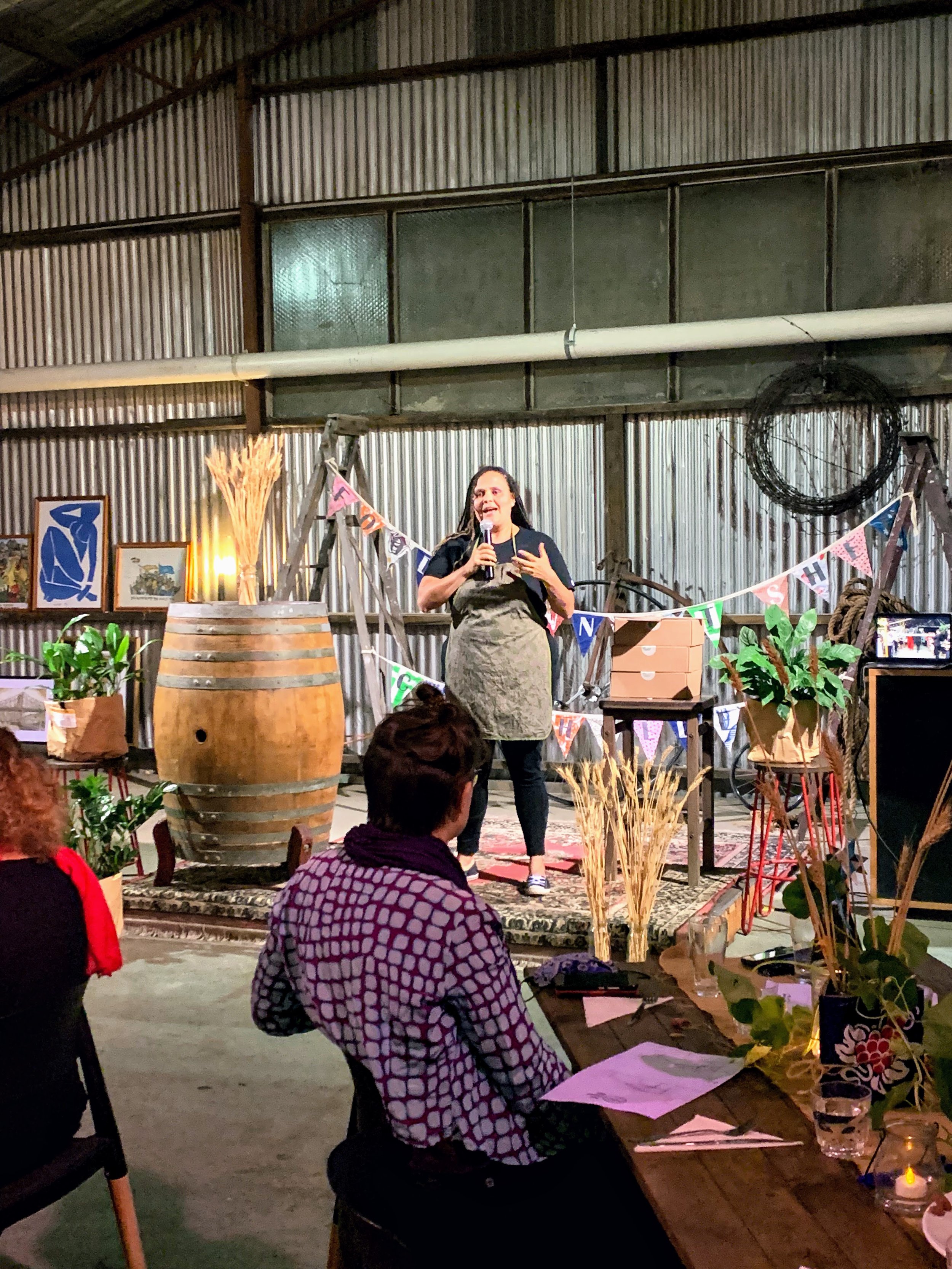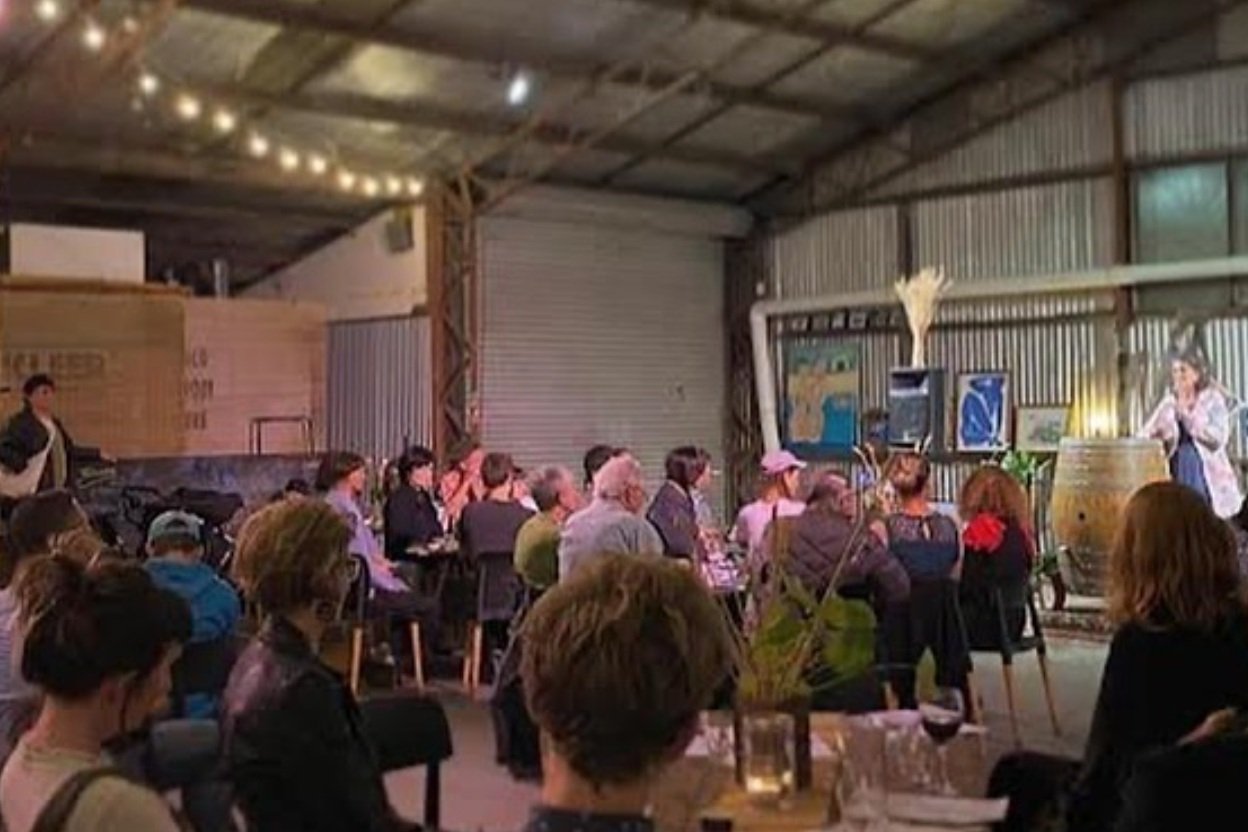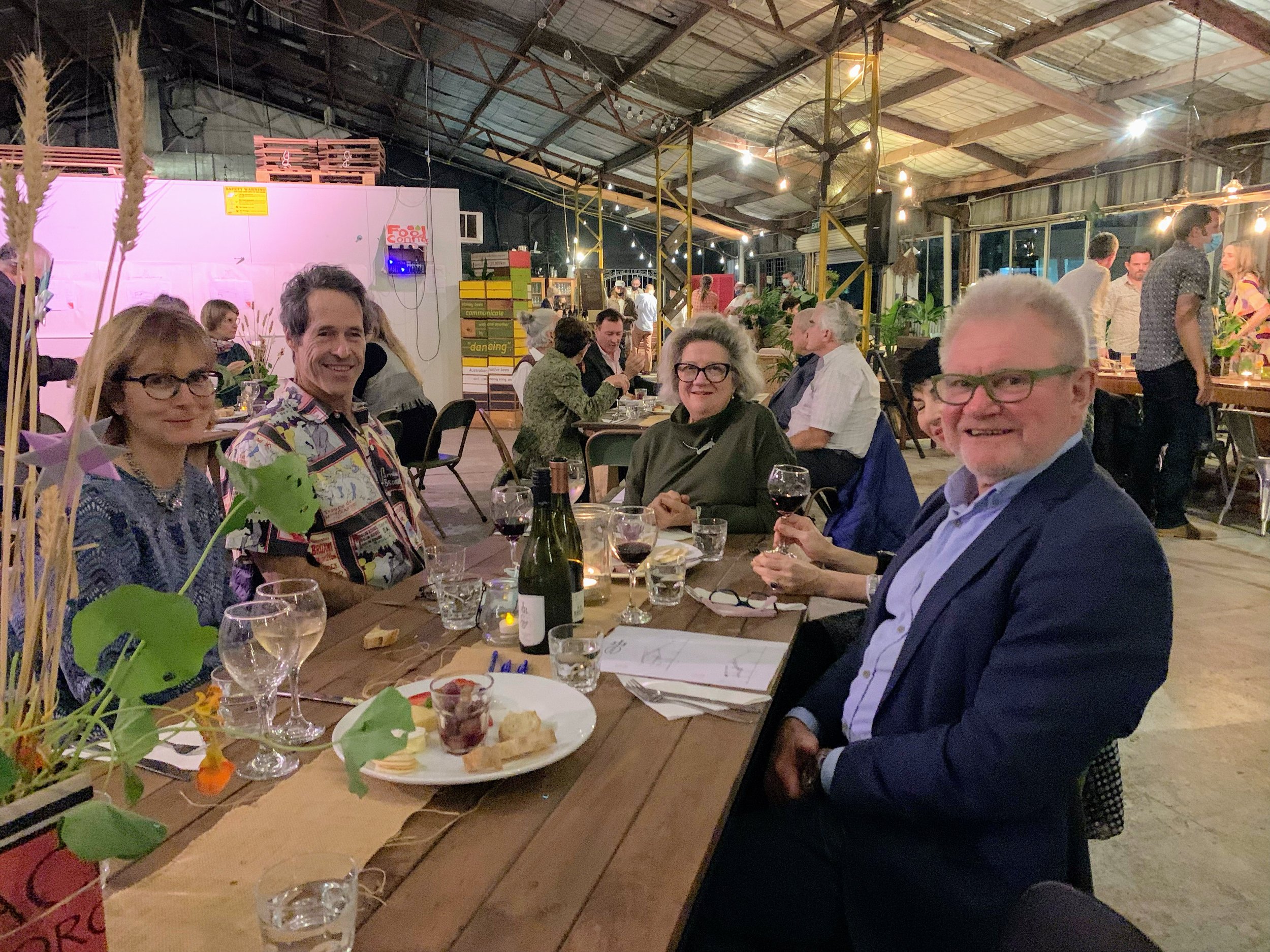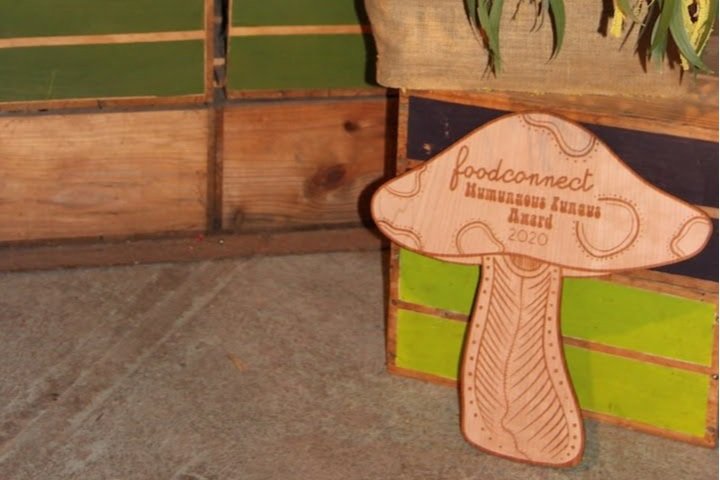…and the importance of healthy soils
For the second year in a row, Russell and Janice Clark at Kia Ora have taken home our Humungus Fungus Award - an annual competition to promote the importance of soil health and biodiversity, and recognising the hard work of our growers in nurturing it.
The ‘Humungus Fungus Award’ is run by our non-profit arm, the Food Connect Foundation (with funding assistance this year from National Landcare), and sees our farmers send in a sample of soil from a typical productive area of their property (you can see a couple of those below). The soil is tested for microbial carbon count, and the percentage of that carbon made up of fungi vs bacteria, free of charge to them. The farm with the highest microbial carbon count wins.
The field of entrants was much larger this year, but so was the Clark's already impressive result! They almost doubled last year’s entry, with a huge 802 micrograms of carbon per gram of soil (not surprising when you look at their gorgeous greens!)
Russell humbly attributes part of the soil’s vitality to their property’s combination of red and black soil, but also swears by an end-of-season green manure crop of cow pea, and additional organic inputs like chook manure and seaweed extract at planting.
The Food Connect Healthy Soils Project was funded by Food Connect Foundation and the National Landcare Program, with principal content delivery provided by Soil Land Food.
Want to learn more about the importance of fungi to our food, and why that cow pea works so well? Read on for a copy of the speech given by soil scientist and friend of Food Connect, Gillian Kopittke, when announcing the winners at August's Food Connect Shed careholder dinner.
“The Humungous Fungus award is a celebration of all our farmers who produce this amazing food we’re eating, and the food that we eat every week.
It celebrates the land they take care of, and it focuses in on that healthy soil they nurture on behalf of us all.
We know that healthy soil is crucial to healthy plants. But did you know, a healthy soil is a living soil. In one handful of living soil, there are more microbes than there are humans on this planet.
Soil microbes –like bacteria and fungi – are the recyclers of our ecosystems.
Fungi decompose organisms to return nutrients back into the nutrient cycle. Fungi generates the living soil, which gives life.
If we didn’t have fungi we would get a build up of plant matter that would choke the earth.
And so fungi are the key. They break down plant life and make it re-useable for new plant life and for animal life.
Fungi are in fact so amazing in so many ways. I think we don’t realise how much of a role they actually play in our everyday life.
Fungi, like yeasts and moulds are used in making cheese, beer, wine. So yes, you could say fungi have helped us all through lockdown – right?
Cheeses like Gorgonzola and Roquefort have penicillin moulds. And of course the discovery of this penicillin has been fundamental to human health advances, but did you know some fungis naturally produce penicillin in the soil to fight off bacterial competition.
And for those of you who like something a bit stronger, consider that bourbon whiskey is corn …fermented by fungi. But don’t worry, scientists have also found some other types of fungi that can stimulate the brain's neural regrowth.
The ability of fungi to break things down helps us with other human formed problems too, like pollution.
Fungis have been trained by scientists in the lab to break down used cigarette filters.
Petroleum pollution in soils can be grazed upon by fungi and breaks it down faster.
And then there are the other things that scientists keep discovering about fungi.
Did you know, Scientists have found that a portobello mushrooms’ skin, if heated to 1000 degrees, forms a lattice of carbon nano ribbon that could be used in battery design.
Fungis are also being discovered for their biopesticide effects – like a fungus that affects termites. So people are investigating to see if this can be a natural way to protect buildings and infrastructure.
And if you want to take away one thing tonight, remember this….
We are closer to Fungi than we are to plants – we share more than half our DNA with fungi.
Fungi send out a network of threads through soil that act like human nerve pathways and can extend for kilometres and live for centuries.
In half a hectare of forest soil a fungi has more of these networks than our brain has neural pathways;
and it indeed works in the same way as our brain, with electrolytes and electrical pulses.
Some scientists have even said that, the internet mimics the same network design as a forest fungi.
And to bring it back to food - 2/3 of our traditional food crops rely on bee pollination. And we’ve all read about threats to bee populations being a big issue for food security… Bees are vital.
But let me give you the good news. Through observation of bee behaviour, scientists have seen bees visiting fungi. And discovered that fungi enzymes can reduce the bee viral loads and extend a bee’s life.
Fungi in soil can probably help us solve all sorts of problems. But one of the most fundamental is their ability to recycle nutrients and water to plants … and therefore improve the food we eat....
This Humungous Fungus award is a fun way for us to celebrate all our farmers, to celebrate the care they take of their land and their living soil, and to enjoy the healthy, tasty food they produce.
Thank you so much to all the farmers who take such pride and interest in their soil. And thank you to those that took the time and effort to collect samples and send them in to the homestead.
And so,
We’re really excited to announce, the winner of the 2nd Annual Humungous Fungus award is:
Russell and Janice Clark!
Unfortunately due to covid restrictions, they can’t be here tonight. But they’ve sent in some photos from the paddock where they grow their amazing food for us.
So for those of you who weren’t here last year, Russell and Janice also won last year. But since then, they haven’t stood still.
This year, we had nearly double the number of entries (which we’re really excited about, BTW) and so there was stiffer competition. But Russell and Janice have done some amazing work and they’ve nearly doubled the amount of microbial carbon in their soils from last year’s entry …. with 802 ug C/g soil.
I had the pleasure of speaking to them earlier to find out a bit more about what they’re doing with their award winning soil.
Russell and Janice’s farm is at the bottom of a big hill (red soil mountain and black soil at the base), at Kia Ora, halfway between Gympie and Tin Can bay.
They find it’s s perfect for growing lettuce, Asian greens, baby spinach, tomatoes (rounds, romas and grape varieties), beans, broccoli, and zucchini … and we get to enjoy all of these in our food connect veggie boxes. But even better, we’re getting to enjoy some of their lettuce and tomatoes with our dinner tonight.
Russell is a big believer in growing a green manure crop, which he plants at the end of every season around November. And I think this might be part of his fungi secret, because he plants cow pea as his green manure crop.
Cow peas form symbiotic relationships in the soil with specific types of bacteria and fungi. The bacteria fix nitrogen and the fungi allows the plants to take up more phosphorus and reduce soil pathogens around the roots.
Russell then boosts his soil at planting time with an organic EXTRA mix – chook poo, fish meal, blood and bone, and seaweed extract.
Like every farmer, they face challenges with managing weeds, pests, rainfall and other environmental effects.
Russell says they just try to do their best but I think we can all say that they, and all the food connect farmers, are doing a fantastic job and one which we appreciate.
And so if you can please join with me to again congratulate Janice and Russell.”
- written by Gillian Kopittke, Soil Science Australia - Queensland Branch 2021






